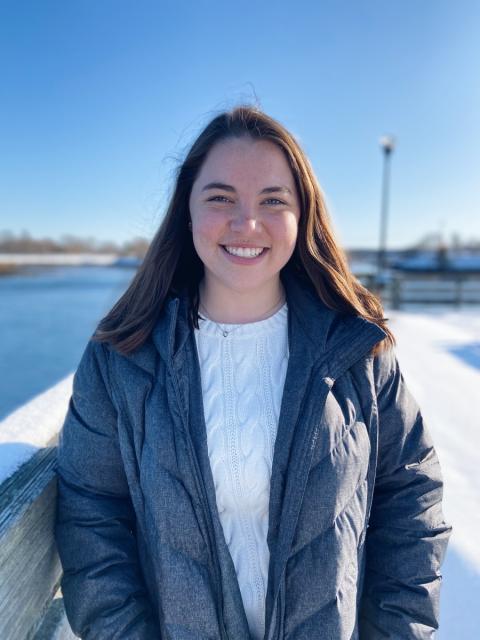Growing through Research
The final week of classes in my undergraduate career is over. All that’s left between me and my degree in biochemistry, molecular and cellular biology is a couple finals and an Honors senior thesis. It doesn’t feel real. Where did the last four years go? What did I even accomplish? Am I ready to move on?

Over this semester, I’ve thought a lot about what I’ve learned since my very first day of college in August of 2019. It’s not about all the biochemical and cell signaling pathways I now know, and it’s not about all the exams, papers, and lab reports I’ve written. All these things are important and are what I came to UNH to do. But the most important parts of the last four years are all the things I’ve learned about myself. I learned how to work through incredibly difficult times and come out on the other side a stronger individual. I learned to accept failure and to grow from it. I learned to be confident in myself and in my abilities. All of this, I learned through conducting undergraduate research in the field of cancer biology while watching my own family member undergo chemotherapy.
I first got involved in research in the spring semester of my sophomore year, in the height of the COVID-19 pandemic. Obstacle number one. There were restrictions on how many people could physically be in the lab, so I wasn’t able to learn and practice the techniques used daily in cell biology research. Without having any academic laboratory research experience, I wrote a proposal for a Summer Undergraduate Research Fellowship (SURF) through the Hamel Center for Undergraduate Research to begin a project with Dr. Sarah Walker. I was excited to be awarded the fellowship, but now I had to navigate studying the very cancer my aunt was diagnosed with the previous year. Obstacle number two. I study triple negative breast cancer (TNBC), the most aggressive type of breast cancer that is associated with a poor, 5-year survival rate. Some days are harder than others, especially when I’m reading literature that details the dismal statistics or when an experiment I was excited about doesn’t work or the data isn’t usable. This is where I learned to be resilient. Research is slow and difficult, but I learned that if I push through the hard days, I can have an impact on the lives of people affected by TNBC, just like my aunt.
Along with failed experiments, I have also had failed research proposals, meaning I was not awarded the funding for which I applied. Failed experiments are easier to overcome because I can change a variable and try it again the next day. However, proposals require many hours of reading, writing, and data analysis so when it is unsuccessful it can feel quite discouraging. I am pursuing a PhD in cell biology after graduating from UNH, so I applied for funding from the National Science Foundation. While I was not awarded this funding, I did receive good feedback that I will be able to use when I reapply this fall.
One of the requirements of an Honors thesis is to present your work. I spent about two weeks in April presenting my research at the American Association for Cancer Research Annual Meeting and at several different events at the UNH Undergraduate Research Conference (URC). At the College of Life Sciences and Agriculture URC, I gave an oral presentation. This is something freshman year me would never have expected. In the past, public speaking is something that I would do my best to avoid. However, talking about my research in the oral presentation format was far easier than I thought it would be. I know my work inside and out, and I felt confident standing up in front of my peers, teachers, and family to tell them about everything I’ve learned the past two years working with Dr. Walker.
Despite all the obstacles and failures that go along with participating in research, I wouldn’t trade my undergraduate research experience for anything. I learned to be adaptable and strong, and I gained a great sense of self confidence as I navigated working in a research lab for the first time. When asked about the most valuable experience I had at UNH, I emphasize the role that the Hamel Center for Undergraduate Research had in my growth as a scientist, researcher, and as a person. It’s because of the opportunities provided by the HCUR and my mentor Dr. Sarah Walker, that I feel tremendously prepared to pursue a PhD and career as an academic scientist.